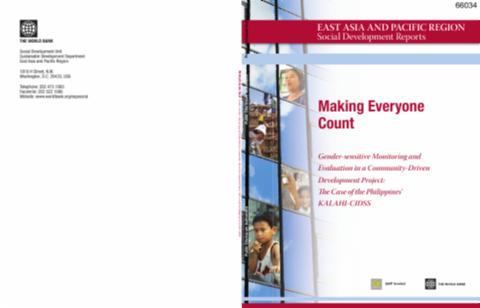Resource information
The Philippines has made significant progress in empowering women and in advancing gender equality. The government's policy on gender equality and women's empowerment has prioritized women's economic empowerment, advancing human rights and enhancing gender-responsive local governance. All these priority concerns are integral components of poverty reduction programs in the Philippines. The Philippines has made significant progress in empowering women and in advancing gender equality. Since the government introduced a constitution in 1987 affirming the equality of women, it has pursued a number of initiatives to mainstream gender concerns in national policies and programs. A development plan for women was launched in 1987, followed by a plan for gender-responsive development, 1995-2025, coordinated by the National Commission on the Role of Filipino women. In 2004, the commission drafted a framework plan for women that identify three priority concerns to meet the objectives of gender equality and women's empowerment: economic empowerment of women, protection and fulfillment of women's human rights, and gender-responsive governance. Projects that support these priorities will facilitate more equitable development across the Philippines, including supporting the full participation of women in political processes and governance in the international and national local level, strengthening gender-sensitive and inclusive programs and mechanisms with civil society, and increasing women's access to economic resources such as capital, technology, information, markets, and training.


